PREVIEW
Guests heard on Volume 83

Barrett Fisher, on film noir and its revealing portrayal of human moral confusion
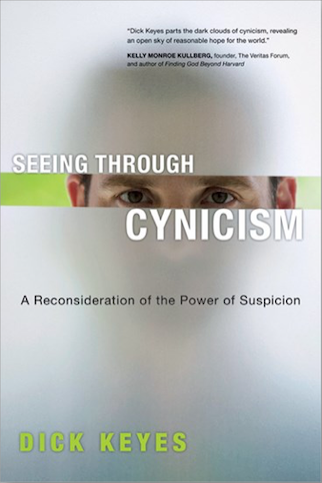
Dick Keyes, author of Seeing through Cynicism: A Reconsideration of the Power of Suspicion, on contemporary cynicism, how it’s destructive, and how it might be resisted
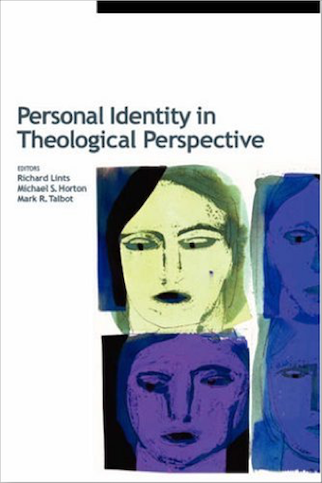
Richard Lints, co-editor of the anthology Personal Identity in Theological Perspective, on a distinctively theological approach to understanding human identity

Paul McHugh, author of The Mind Has Mountains: Reflections on Society and Psychiatry, on how the discipline of psychiatry needs to mature, and on stories as diagnostic tools
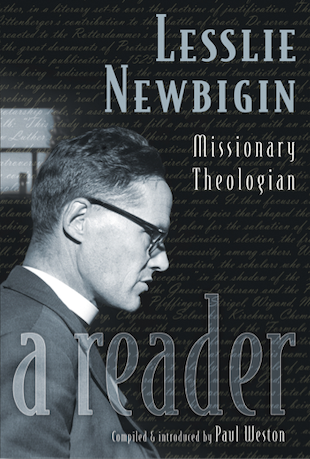
Paul Weston, editor of the anthology Lesslie Newbigin: Missionary Theologian, on lessons from Lesslie Newbigin on interfaith dialogue and the attacks on Christianity from scientism (Archive Feature available)
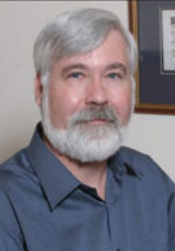
Paul Walker, on how the forms of Renaissance choral music communicate rich theological concerns
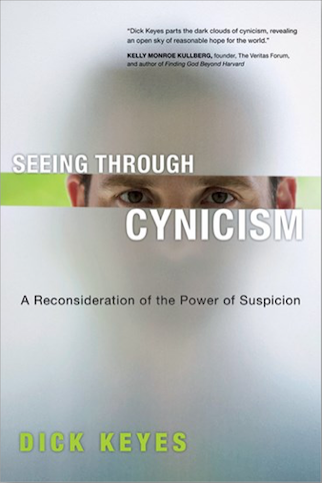
Bonus: Dick Keyes, author of Seeing through Cynicism: A Reconsideration of the Power of Suspicion, discusses the difference between cynicism and suspicion and how contemporary culture encourages cynicism to fester
Related reading and listening
- The recovery of an integrated ecology — In this essay, Michael Hanby unpacks the summons of Laudato si’ to an ecological way of life based on a proper understanding of creation in its fullness and integrity. (57 minutes)
- Manners and morals —
FROM VOL. 19 Film and literary critic Alan Jacobs discusses how modern audiences relate to the manners and morals portrayed in Jane Austen films. (16 minutes) - The moral complicity of movie audiences — Film critic David Thomson explains why Alfred Hitchcock’s film Psycho achieves a kind of unique synergy with American culture, raising unsettling questions about alienation and identity. (33 minutes)
- Politics and the good —
FROM VOL. 160 D. C. Schindler argues that political order cannot be disentangled from the social, and that fundamental questions of what humans are and what the good is cannot be bracketed from politics. (30 minutes) - The profound drama of human sexuality — In this lecture, D. C. Schindler explains the cosmological significance of human sexuality and why it is paradigmatic of the relationship between nature and freedom. (32 minutes)
- A poet’s relationship to time —
FROM VOL. 57 Poet Wilmer Mills (1969–2011) discusses how his agricultural and cross-cultural childhood in Brazil shaped his imagination and his relationship with modernity. (11 minutes) - The downward spiral of all technocracies — Andrew Willard Jones explains the two paths that exist with the development of new technologies: one which leads to an expansion of the humane world and one which exploits and truncates both Creation and humanity. (65 minutes)
- To see people as people — Anthony Bradley argues that a recovery of Christian personalism is needed to counter the dehumanization, polarization, and tribalism of our day. (45 minutes)
- Ethical issues in neurobiological interventions — William Hurlbut explores current neurobiological advancements and the ethics and dangers of biotechnology interventions that go beyond therapy. (62 minutes)
- An impoverished anthropology —
FROM VOL. 146 Mark Mitchell asks whether there is anything that truly binds Americans together beyond their commitment to self-creation. (34 minutes) - Steward of knowledge vs. autonomous knower —
FROM VOL. 66 Esther Lightcap Meek challenges the modernist view of knowledge, which prefers the figure of the autonomous knower to the figure of a steward of knowledge acquired in part from others. (15 minutes) - St. Thomas the anthropologist — G. K. Chesterton on Aquinas’s complete Science of Man
- An embedded life — Following a move from one state to another, Gilbert Meilaender explores the tension between being simultaneously a sojourner and a body located in place and time. (30 minutes)
- Impact of “infotainment” on community — Neil Gabler and C. John Sommerville discuss how the mentalities conveyed by our experience with communications media work against the nurturing of community. (36 minutes)
- On Eugenics in America — Christine Rosen explores early eugenics support in the early 1900s and current “participatory evolution” practices. (50 minutes)
- Gratitude, vitalism, and the timid rationalist — In this lecture, Matthew Crawford draws a distinction between an orientation toward receiving life as gift and a timid and cramped rationalism that views man as an object to be synthetically remade. (52 minutes)
- Humans as biological hardware — In this essay, Brad Littlejohn and Clare Morell decry how modern technology tends to hack the human person in pursuit of profit. (55 minutes)
- “The system will be first” —
FROM VOL. 27 Robert Kanigel describes the transformation of work due to Frederick Winslow Taylor’s concept of scientific management. (11 minutes) - What it means to be a person —
FROM VOL. 147 Sociologist Craig Gay argues that in order to address the challenges of a technological approach to the world, we need to recover the Christian tradition’s robust theology of personhood. (24 minutes) - Voluntarily silencing ourselves —
FROM VOL. 39 John L. Locke discusses the value of personal communication and how technology is displacing it. (12 minutes) - Human nature through the eyes of Lucian Freud —
FROM VOL. 7 Art critic and sculptor Ted Prescott discusses the work of British realist painter Lucian Freud (notably, the grandson of Sigmund Freud). (8 minutes) - Self-knowledge versus “selfism” —
FROM VOL.10 Psychologist Paul Vitz argues that the modern focus on self-actualization makes the self the highest good in the cosmos. (7 minutes) - Christianity and psychiatry in a “comfortable rapprochement” —
FROM VOL. 38 Dan Blazer examines several factors he believes have led to the end of the necessary and creative tension between Christianity and psychiatry. (11 minutes) - The gift of meaningful work — In this lecture, D. C. Schindler argues that genuine work is inherently meaningful and facilitates an encounter with reality and therefore, ultimately, with God. (36 minutes)
- “Gender” as ultimate separation — In this November 2018 lecture, Margaret McCarthy explains how the predictions of Pope Paul VI’s Humanae vitae regarding the consequences of separating sex from procreation have proven true. (38 minutes)
- How words are central to the human experience —
FROM VOL. 95 Craig Gay reflects on the essential linguistic nature of humanity: how our growth (or decline) in life is tied to words. (18 minutes) - Bearing well the burdens of the past, present, and future — Louis Markos shows how great literature like the Iliad links us to the human story and strengthens us to live fully and well. (65 minutes)
- The abolition of the fine arts — In this lecture, R. V. Young examines why people are increasingly unable to discriminate between base and fine art, arguing why this issue is of particular concern to Christians. (41 minutes)
- Recovering the primacy of contemplation — Augusto Del Noce finds in St. Augustine resources to diagnose the fatal flaw in progressivism
- Confronting the supremacy of science — Augusto Del Noce on the belief that science is the only true form of knowledge
- The roots of American disorder — In this reading of an article from 2021 by Michael Hanby, the critique of Marxism in Augusto del Noce’s work is compared with texts from the American Founders. (79 minutes)
- Faith as the pathway to knowledge — Lesslie Newbigin on authority and the Author of all being
- Unmasking claims of “secular neutrality” — Lesslie Newbigin on the Church’s prophetic duty concerning public life
- The kingdom of God has public consequences — Lesslie Newbigin on the subversiveness of the Church’s message to the world
- Mars Hill Audio Journal, Volume 162 — FEATURED GUESTS: Mark Noll, R. Jared Staudt, Paul Weston, William C. Hackett, Hans Boersma, and David Paul Baird
- The Gospel as the foundation of dialogue —
FROM VOL. 83 Professor Paul Weston discusses theologian Lesslie Newbigin’s time in India and how it influenced his thought and work. (17 minutes) - Personhood, limits, and academic vocation —
FROM VOL. 39 Marion Montgomery (1934–2002) offers a deep critique of the relationship of the academy to its community in an effort to diagnose how higher education has lost its way. (13 minutes) - A Christian philosophy of integrated education —
FROM VOL. 61 Michael L. Peterson discusses how Christianity could inform society’s understandings of education and human nature. (8 minutes) - Education for human flourishing — Co-authors Paul Spears and Steven Loomis argue that Christians should foster education that does justice to humans in our fullness of being. (23 minutes)
- Automation and human agency —
FROM VOL. 150 Philosopher and mechanic Matthew Crawford laments the losses of human skill that correspond with gains in mechanical automation. (21 minutes) - Fixed certainties, fixed mysteries —
FROM VOL. 42 Science journalist John Horgan, author of The Undiscovered Mind: How the Human Brain Defies Replication, Medication, and Explanation, discusses the limits of neuroscience. (13 minutes) - Not good to be alone — In a lecture titled “Gender and the Common Good,” Margaret Harper McCarthy argues that the current ideology regarding gender fundamentally separates people from one another and finally even from themselves. (34 minutes)
- Walker, Paul — FROM THE GUEST PAGE: Paul Walker is an organist, harpsichordist, musicologist, early music specialist, and church music director, all of which has led him to a multi-faceted career.
- Discerning an alternative modernity — In a lecture from 2019, Simon Oliver presents a summary of the cultural consequences of the comprehensiveness of the work of Christ. (28 minutes)
- Ingmar Bergman and God — Gene D. Phillips, S.J. on the shape of Ingmar Bergman’s religious pondering
- Postmodern manners and morals — Mary P. Nichols on the films of Whit Stillman as comedies of manners
- Movies and terminal irony — Two archive interviews explore how the films of Ingmar Bergman and Whit Stillman sustain a degree of moral depth absent in most movies. (30 minutes)
- Weston, Paul — FROM THE GUEST PAGE: Since 2003 Rev. Dr. Weston has taught mission studies at Ridley Hall Cambridge and has been an affiliated lecturer in the University of Cambridge Divinity Faculty. In 2014 he became Director of the Newbigin Centre for Gospel and Western Culture, based at Ridley.
- Fisher, Barrett — FROM THE GUEST PAGE: Dr. Barrett Fisher II is Dean of Academic Programs for the College of Arts and Sciences in Bethel University (St. Paul, Minnesota), where he served as Professor of English and department chair, as well as faculty development coordinator, before moving into full-time administration.
- In tune with the muses of Zion — Ken Myers on the Christmas music of Michael Praetorius